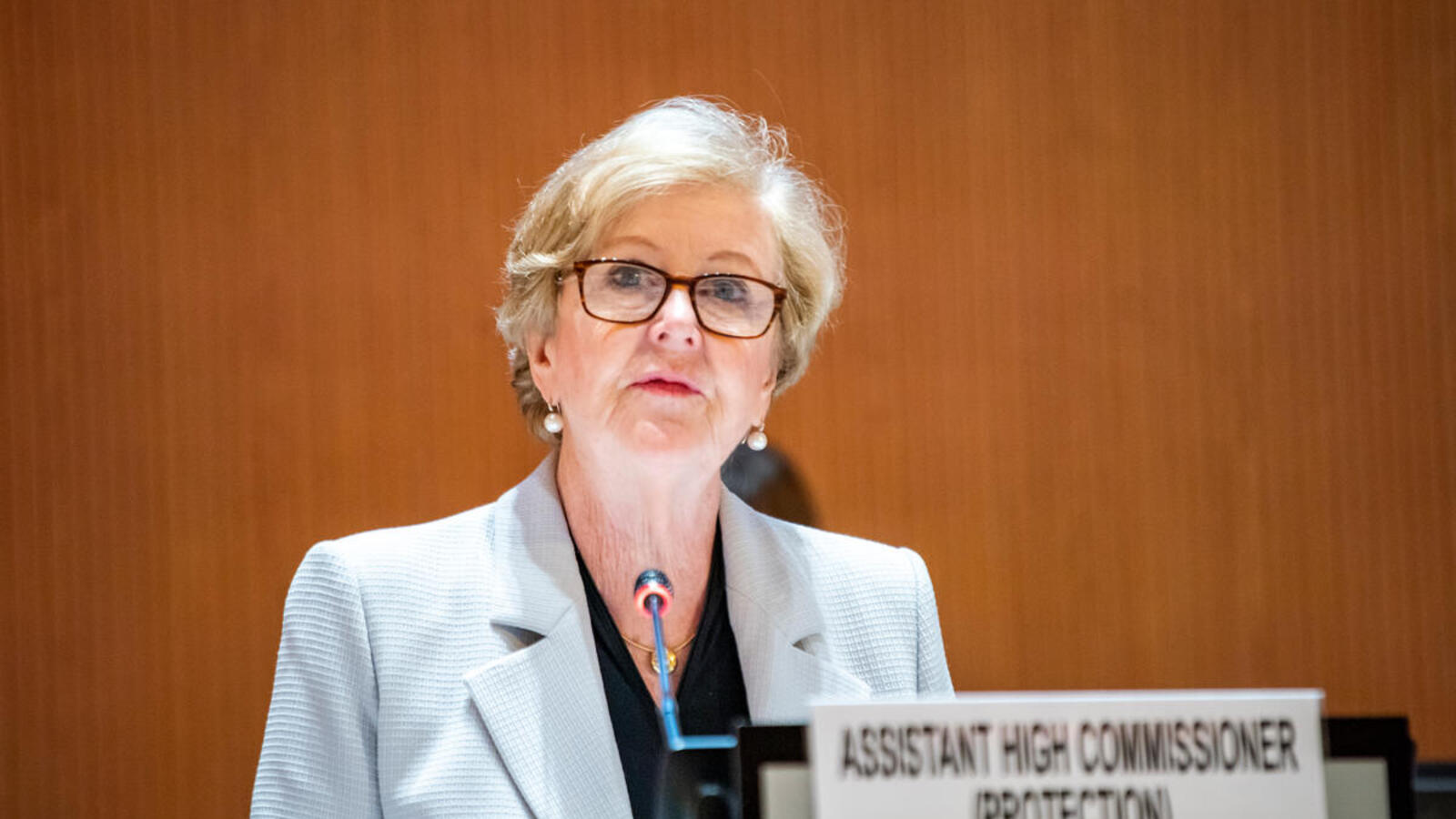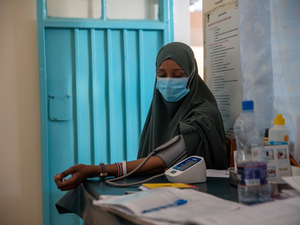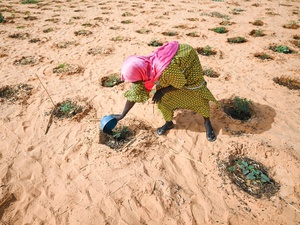UNHCR protection chief urges fresh approaches to safeguard refugees
UNHCR protection chief urges fresh approaches to safeguard refugees

UNHCR Assistant High Commissioner for Protection Gillian Triggs addresses Excom 2022.
During a year in which the war in Ukraine, along with other conflicts, pushed the number of forcibly displaced people to over 100 million, the UN Refugee Agency’s Assistant High Commissioner for Protection, Gillian Triggs, urged governments and other actors to take bold steps to ensure peace and protect those forced to flee their homes.
“Each year we report ever increasing numbers. Each year the dire plight of those displaced deepens,” Triggs said in a speech at the annual meeting of UNHCR’s Executive Committee in Geneva on Thursday. “It is time for some refreshed thinking, some original ideas and initiatives, and strategies to promote peace and protection.”
Triggs called on governments to step up efforts to safeguard the right of people fleeing conflict and persecution to claim asylum. The war in Ukraine has shown why the right to seek and enjoy international protection – a core principle of the 1951 Refugee Convention, and of UNHCR’s mandate – remains so necessary, she said.
“The global response to the Ukrainian protection crisis shows that, with political will, countries and their citizens welcome millions in an emergency,” she said, adding that other countries such as Bangladesh, Türkiye and Pakistan have provided protection to the displaced for years.
While millions of Ukrainian refugees have been admitted to other countries and given protection, Triggs said she was troubled to “observe efforts by a small number of States to adopt extreme policies to avoid their international obligations”.
“Deterrence has become the priority … despite the failure and expense of such policies,” she said, citing attempts by some governments to transport refugees thousands of miles away for processing in other countries.
She urged governments to focus on improving the management and efficiency of their asylum systems to address bottlenecks at courts and in procedures to return people assessed as not in need of international protection to their countries-of-origin.
“Efforts to externalize asylum processes, to deny access to asylum at the border, to push back or adopt draconian deterrence policies are not the answer,” she told the meeting of UN Member State representatives and observers from other UN agencies and intergovernmental organizations.
As forced displacement has risen, so have protections needs, from the millions of displaced children unable to go to school, to the women and girls at greater risk of sexual abuse and exploitation. Triggs said the climate crisis has added another layer of risk.
“It has a disproportionate impact on the most vulnerable and has a multiplier effect in forcing people to flee to safety,” she said, giving the example of Mozambique – a country already facing violence and displacement in the northern province of Cabo Delgado that was battered by five tropical storms and cyclones in the first few months of this year.
Mitigating the impacts of climate change and safeguarding international protection are two of eight areas identified by the UN High Commissioner for Refugees, Filippo Grandi, to be targeted for accelerated action by UNHCR over the next four years.
Others outlined by Triggs include finding solutions for internally displaced people – who make up about 60 per cent of the world’s forcibly displaced people; expanding opportunities for refugees to be resettled or to benefit from other solutions such as labour mobility programmes, academic and community sponsorships, and family reunion; and strengthening efforts to prevent and respond to gender-based violence.
“The global protection crises we face cannot be resolved unilaterally,” Triggs concluded. “We must act collaboratively, and we have the tools to do so.”
One of those tools is the Global Compact on Refugees, which calls for a “whole of society” approach in responding to refugee situations. Referring to it as “our lode star”, Triggs invited delegates to work with UNHCR towards the second Global Refugee Forum in December 2023, to translate the principle of equitable responsibility sharing into action.










